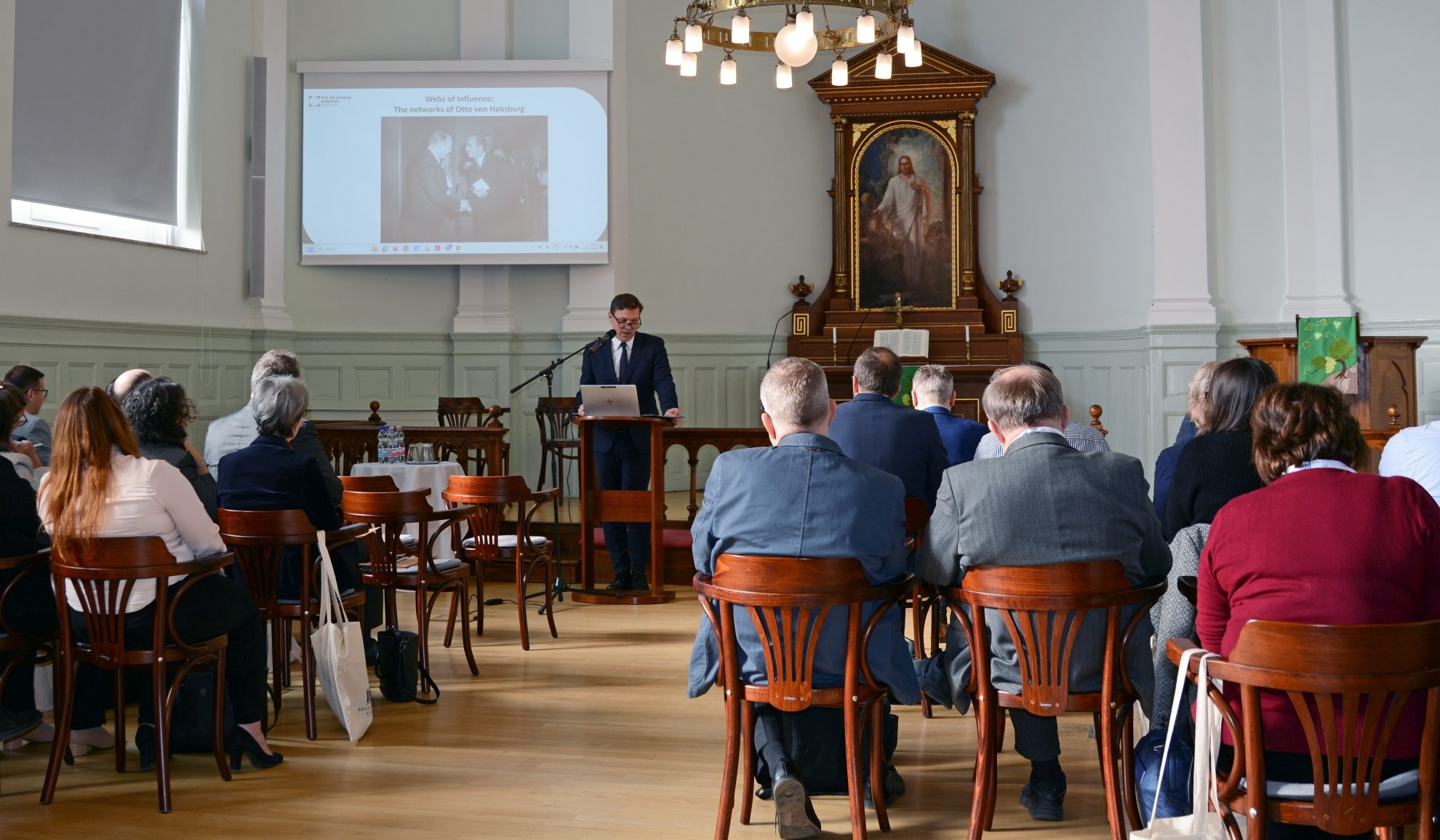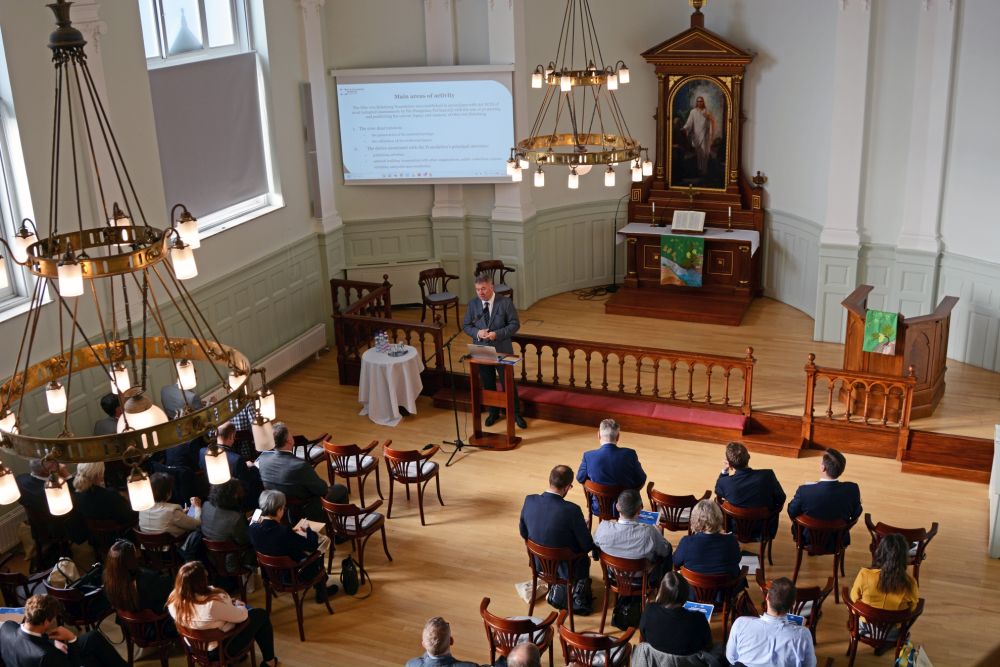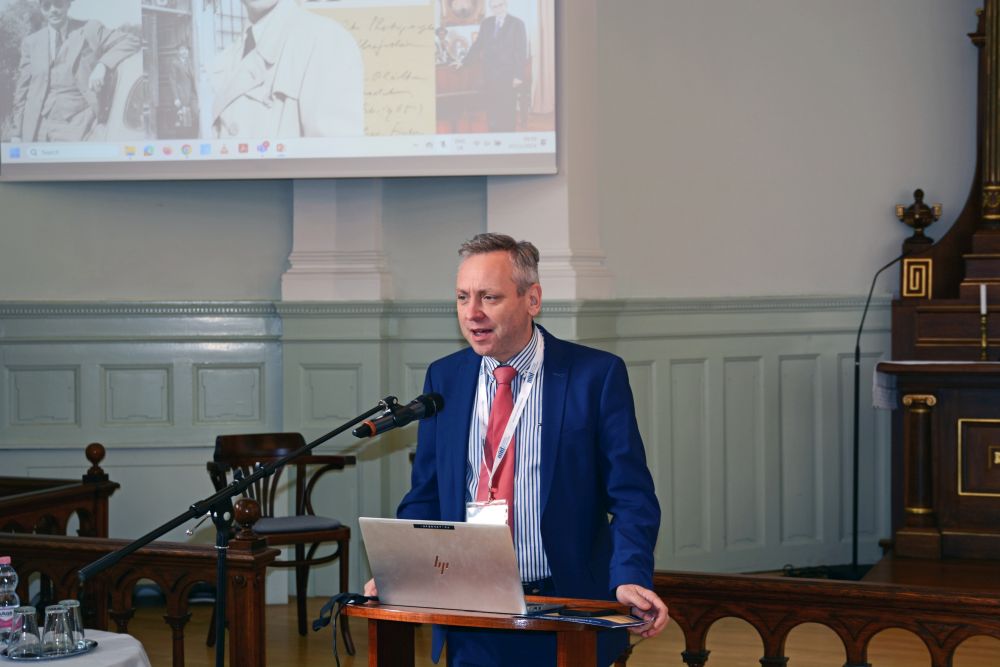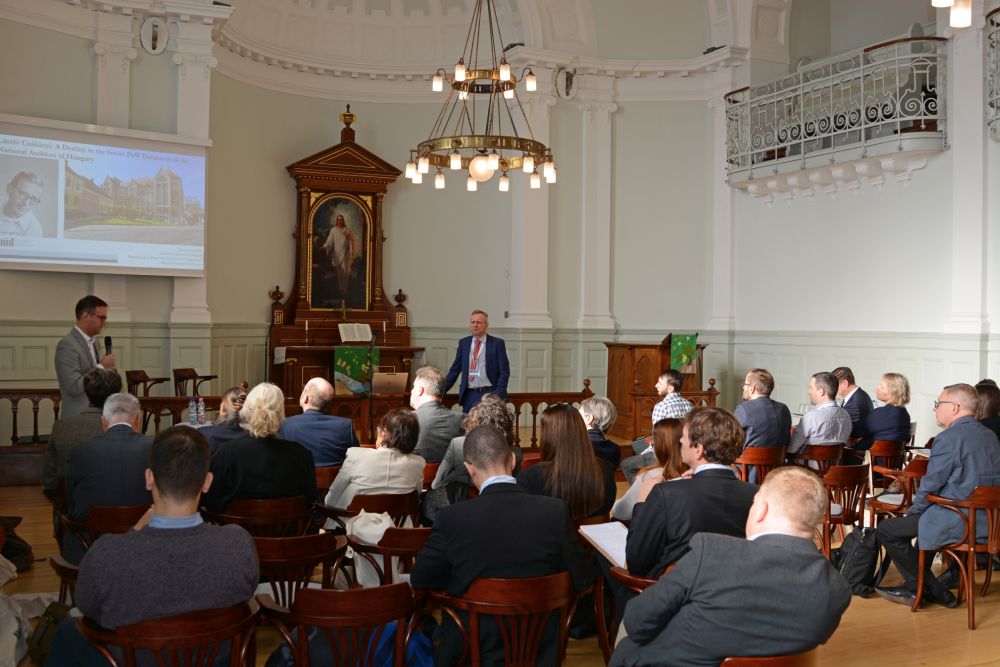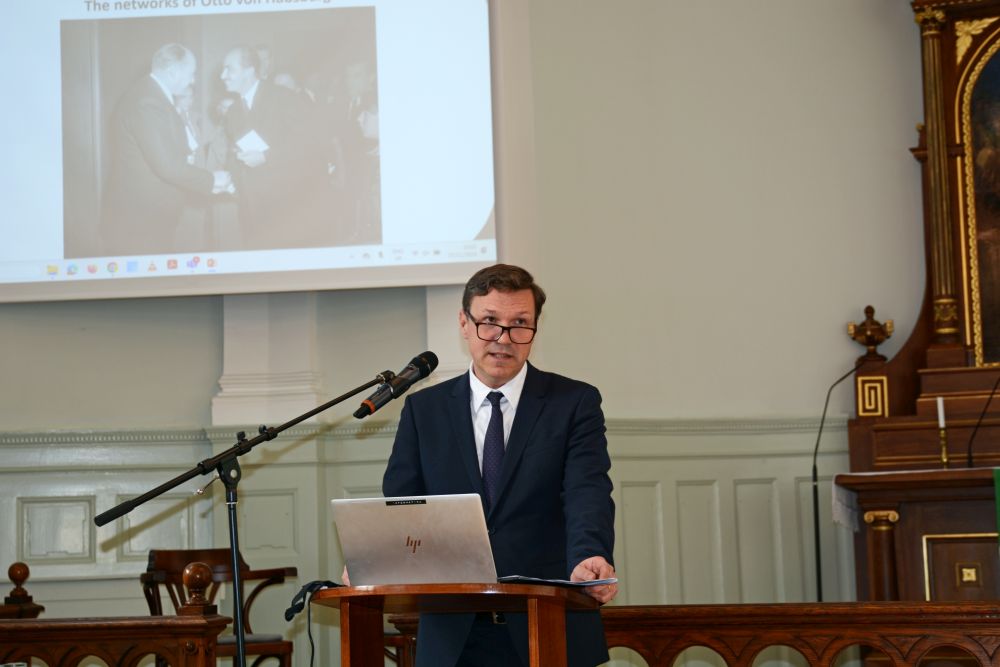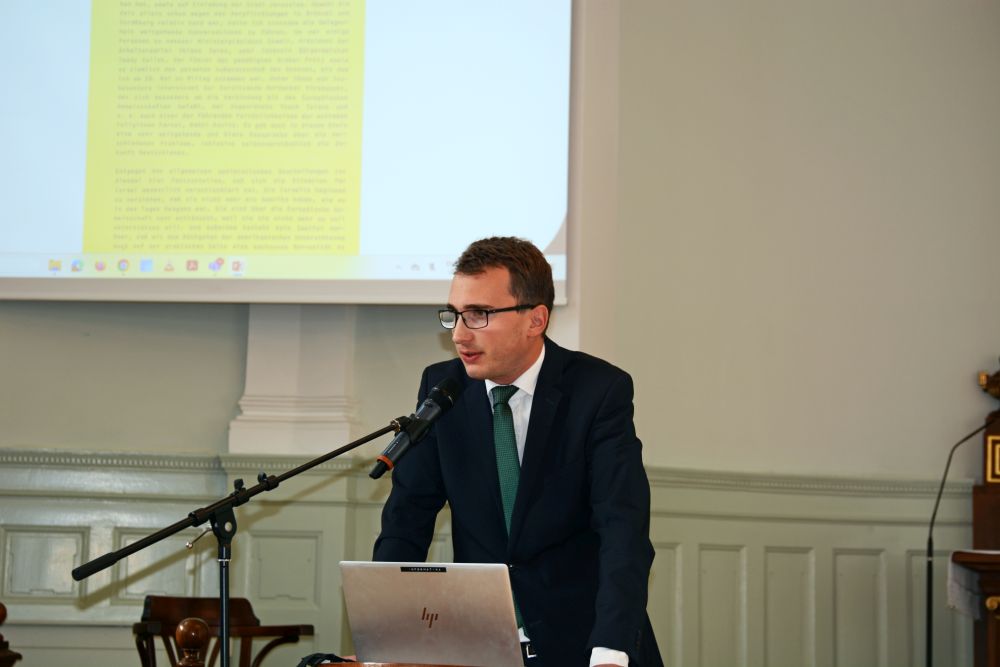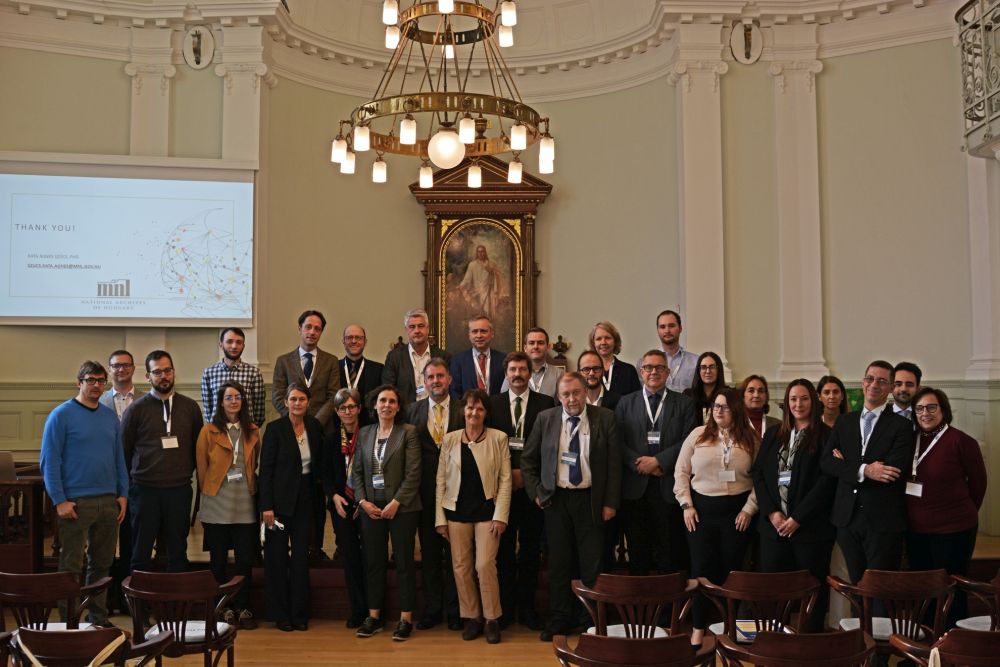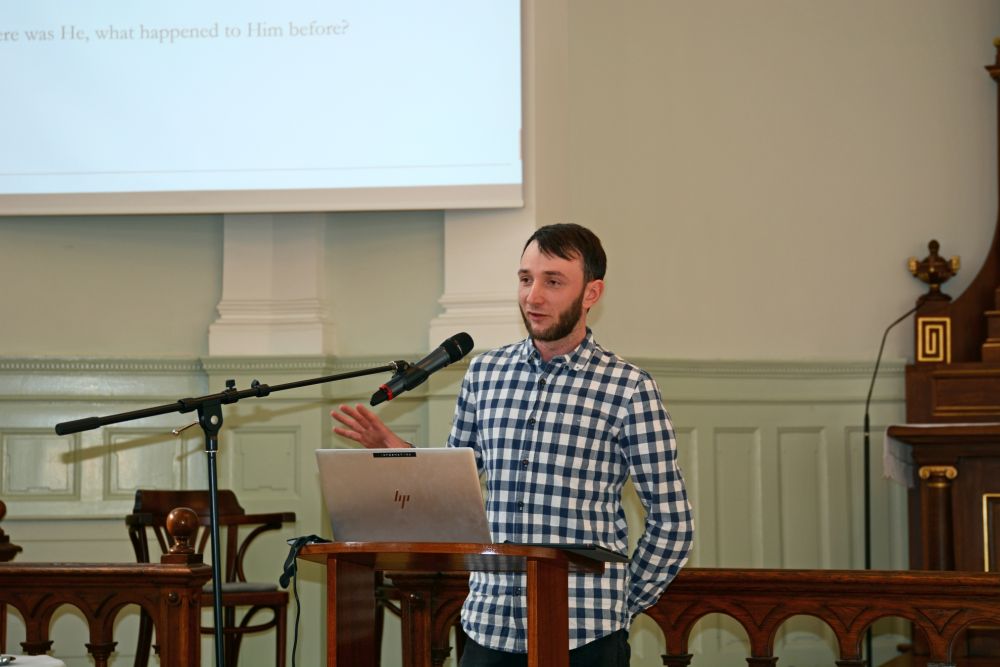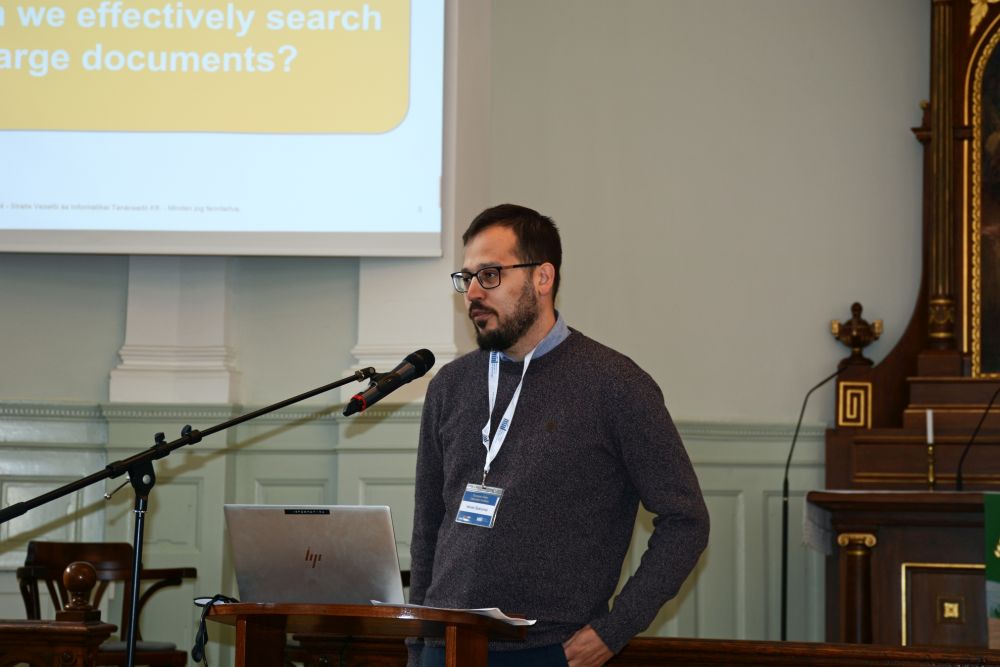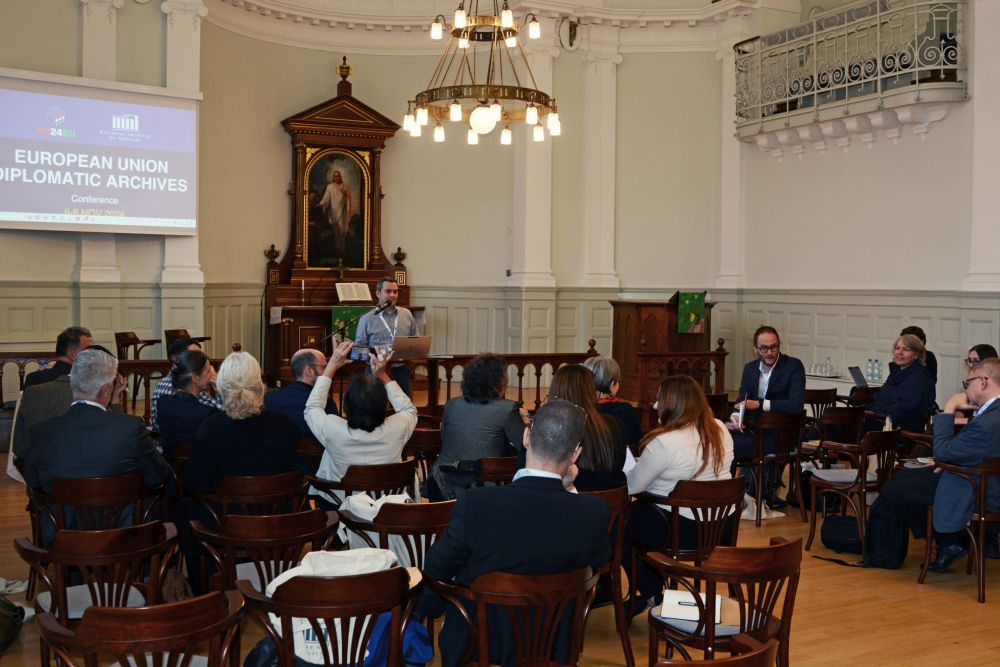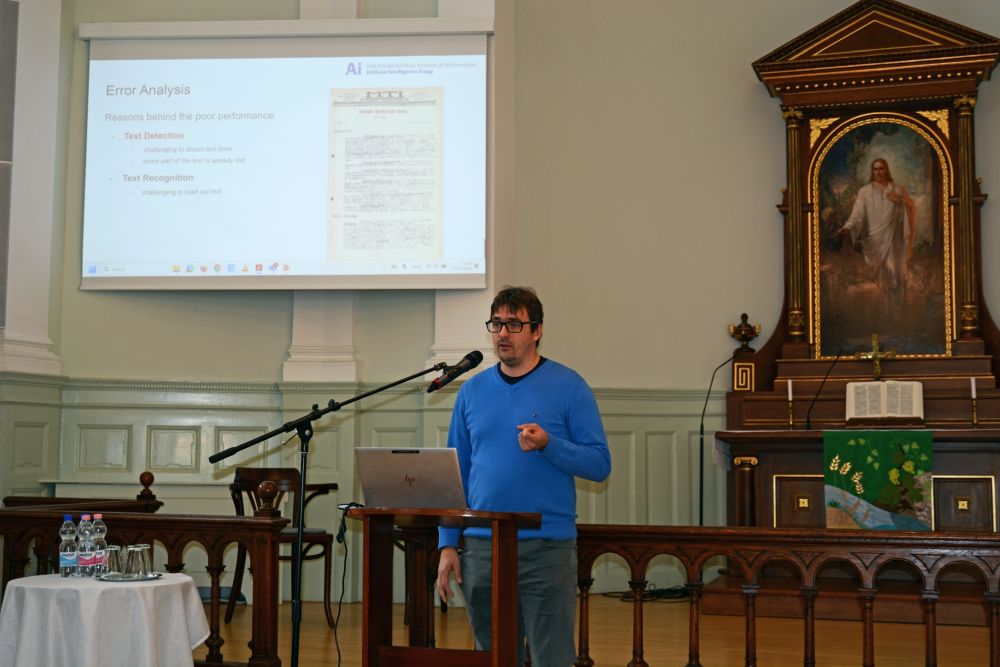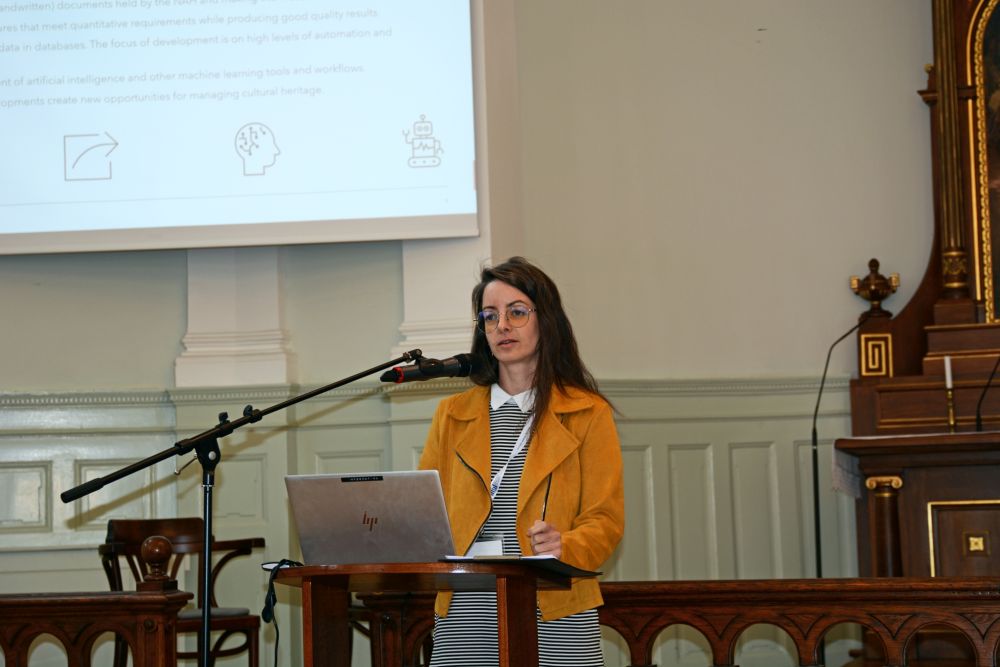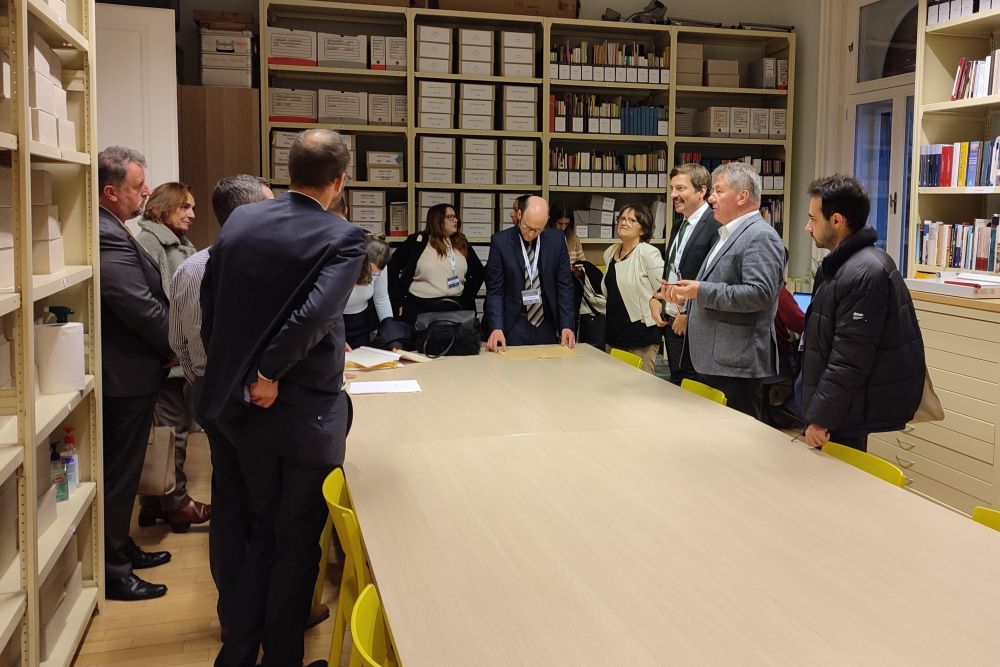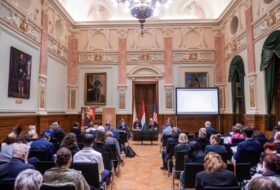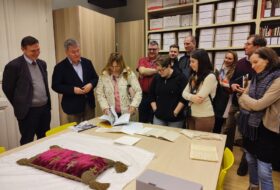EUDiA is an international organisation that brings together directors of archives of the ministries of foreign affairs of the member states and the institutions of the European Union. On the occasion of Hungary’s Presidency of the Council of the EU, the National Archives of Hungary hosted a two-day event in Budapest.
Gergely Prőhle, Director of the Otto von Habsburg Foundation, welcomed our guests. The former diplomat detailed our activities regarding the heritage of the former heir to the throne, a man of great versatility: a historical figure, a sovereign political thinker, a political analyst, an active networker, a Member of the European Parliament, and a committed European. After his remarks, Zoltán Szatucsek, Director of Innovation and IT at the National Archives of Hungary, outlined the specificities of diplomatic sources, the importance of cooperation between the members of the organisation and the results achieved so far (in the research of cross-border events such as the Spanish Civil War or the Cold War).
On behalf of our Foundation, Gergely Fejérdy and Bence Kocsev gave a lecture. While our Deputy Scientific Director presented the most crucial stages of Otto von Habsburg’s life, Bence Kocsev used the example of the 500 pages of correspondence between our namesake and Henry Kissinger to illustrate how the tasks of preservation and research reinforce each other.
On the basis of an agreement between the respective authorities of the two countries, for some years now, the National Archives of Hungary has been keeping digital copies of the documents of Hungarian war prisoners who had been taken to Russia and the Soviet Union during and after the two World Wars. Dániel Miklós presented the relevant World War I database of the National Archives, mentioning the heroic efforts of Mihály Jungerth-Arnóthy (1883–1957), a diplomat who had helped 80,000 of our compatriots return home in the early 1920s. János Főcze summarised the surviving World War II documents relating to some 700,000 people. He illustrated the peculiarities of the data recording by the Soviet and Hungarian authorities and the resulting potential pitfalls in the process of identification and classification, using the example of actor László Csákányi.
The second panel focused on the latest developments supporting archival processing. István Szalontai of Stratis Management and IT Consulting Ltd. spoke about the possibilities of extractive and generative data mining of documents, presenting the prototype of their latest product. Péter Kőrösi-Szabó from the Alfréd Rényi Mathematical Research Institute showed how artificial intelligence can be integrated into archiving processes: their RAG (Retrieval Augmented Generation) application can reduce the “noise level” of documents to an average of about 6.5%, which is significantly lower than competing tools. Kata Ágnes Szűcs, representing the National Archives of Hungary, introduced the audience to new methods of automated data mining from manuscript documents that are considered a goldmine for historical research in connection with the nearly 100 years of records of the settlement of Abony.
During the section following the lunch break, a heated exchange of views ensued between the participants on the issue of the declassification of EU and NATO documents. Subsequently, the book entitled “European Union – Forging a Union for Peace” was presented. The volume, which contains short essays on the most important figures of the 20th century who had promoted a united Europe, was edited by the National Archives of Hungary, with the contribution of our Foundation to the chapter on Otto von Habsburg.
At the end of the eventful day, Gergely Prőhle guided the participants through the premises of the Otto von Habsburg Foundation.
Photos: National Archives of Hungary
